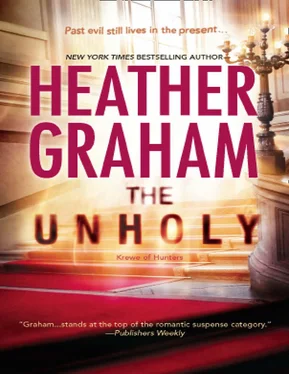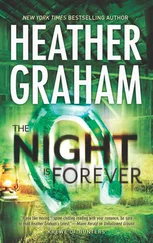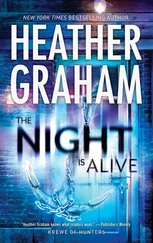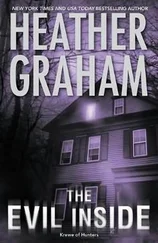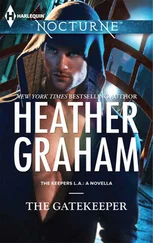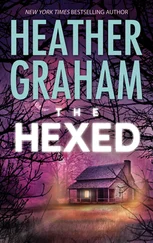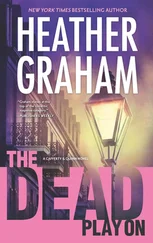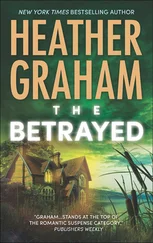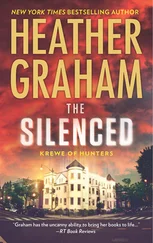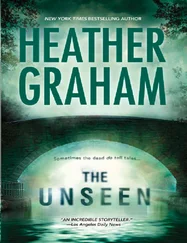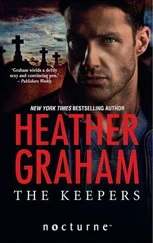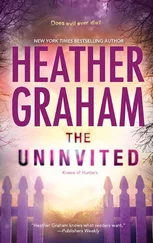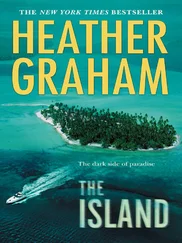Sam Stone now had a cell phone and a computer.
Alistair was happy that the studio had the momentous task of bringing the film up-to-date, and he knew the effects would be splendid, but he still wasn’t sure about a remake. In his opinion, some things were better off left alone. Film noir didn’t really fit with computers and cell phones.
“What are you doing here?” Alistair asked as the film wound on and the projector clicked, clicked, clicked. “How did you get in?” Alistair had keys to the studio, to the doors that separated the underground tunnel from the studio, and to the Black Box Cinema. His father trusted him completely.
He hated to betray that trust in any way. Even for Jenny. But he’d brought Jenny in with him before. It wasn’t unusual that she’d come; it was unusual that she’d been able to just slip in.
She touched his cheek and smiled seductively. At twenty-two, his senior by a year, she already had the moves—as well as the appearance—of a femme fatale down pat. She eased away, flicking back the strands of hair that had hidden her eyes. “You left the front door open, silly,” she told him. “I started to knock, but…it was open.” She grinned, and looked more like any other young Hollywood hopeful. “The rest of the place is tight as a drum, but my dear, darling, responsible Alistair, believe it or not, you left the front door open.” She paused to give him a charming pout. “I’ve been trying to call you. You didn’t answer your cell.”
He had to wonder what it was about one person that could turn the senses of another upside down. The senses and the sanity. Yes, Jenny was beautiful and perfect, but…it was Hollywood. The stunning, the perfect and the beautiful all walked about, ever hopeful, some willing to do whatever it took to get where they wanted to go, others starry-eyed and naive. He was the son of one of the most respected men in the movie business, and he suspected Jenny hung on to him because of what she thought he could do for her.
“Sorry,” he said, and the tone of his voice was annoyingly husky. She knew she sent his libido off the charts, and he hated the pathetic puppy-dog tail-wagging demeanor he must put forth when she was around. “I was watching the movie. It’s my favorite. Sam Stone and the Curious Case of the Egyptian Museum. I really love the film, and the special effects for it were actually done here, when the place was still Claymore Illusions.” That fact added to the pride his father took in securing the special-effects contract for The Unholy.
Jenny shook her head. “Silly boy, living in the past! Except, of course…”
The production company was trying to keep the information about the Sam Stone remake quiet, but of course the rumor mill was already on the case. The company had neither rejected nor affirmed the claim. Rumors and anticipation could give a film a tremendous box-office advantage.
“So, um, why are you here?” Alistair asked.
Despite her imitation of classic Hollywood vamps, Jenny was not a fan of film noir, or any other “old” movies. She loved silly modern-day romances and adventure flicks, the kind with überbuff heroes who lived exciting adventures and saved the world.
She threw her head back and touched her hair again, one of her moves calculated to be uncalculatedly sexy.
“I heard the studio’s locked down!” she said breathlessly.
He nodded.
“But not to the son of Eddie Archer!”
He groaned aloud. “Jenny, you know it’s not just my dad. It’s the movie studio, the producers, the directors—they don’t want information on pictures or anything on costumes and effects getting out.”
She gave him her pout again. She did it very well, making a little moue of hurt. “Alistair, you know I’d never tell a soul what I’ve seen. I’d never tell a soul I was even in there. But they’re still casting for extras—extras who might wind up with speaking roles. If I had a feel for what was going on, it would help me immensely. Please?”
He hesitated. Jenny always did pay up. If he took her through the studio, he’d be rewarded that night.
He was pretty sure she’d learned her lovemaking from the movies—dirty ones, at that. She was vocal; she liked to crawl on top and twist around like a voodoo queen dancing around a pole.
“You have a key to the studio,” she said.
He groaned again. “If I tried to go in with a guest, old Colin Bailey, who’s on guard at the reception desk, would push his alarm button and every cop in the area would appear,” he said. Colin Bailey had worked for his father for the full twenty years he’d owned the studio—which was most of Alistair’s life. He was like a fixture, dedicated to the studio. And during lockdown, he was fierce.
She moved closer to him. “I realize we can’t go in by the front but we can sneak in because you have a key and the pass code to get there through the tunnel door. And Colin Bailey would never see us, because you know right where the cameras are so we can avoid them.”
Almost involuntarily he felt his left pocket. He did have the keys. But he’d told her the truth. Colin Bailey would report Alistair to his father without blinking an eye.
She shimmied up against him, her body pressed to his in just the right way to elicit an immediate response. Her perfect breasts—albeit made that way with some saline enhancement—were firm against his chest and her groin pushed against his.
He forgot his father completely. He also forgot the danger—and the fact that he was being used.
“All right,” he said. Now his voice was flat-out hoarse. “We’ll go by the tunnel.”
She smiled. She rose up on her toes and brought her lips to his and did things with her tongue that nearly made him climax on the spot. Then she stepped back. “That was a little promise of things to come!”
He nodded. He couldn’t speak.
He turned around. On the screen, Dianna Breen was screaming. She was being chased by the Egyptian robe-clad murderer, who was forcing her deeper and deeper into the museum.
Alistair stumbled through the audience chairs to the back. He entered the old lobby, where wine and beer were sold, along with various forms of high-end movie snack food. To the far left of the lobby were a few offices and conference rooms, and at the back of his father’s favorite little meeting room was a door, nominally hidden by a movie poster.
“Oooh, this is like a high-tech spy adventure!” she said.
“There’s nothing high-tech about it,” he said as guilt clashed with the near-desperate desire she elicited. “It’s a movie poster covering a door.”
She was pressed to his back. Desire won out over guilt.
Alistair swept the canvas poster to the side, dug in his pocket and twisted the key in the lock, fumbling for a moment as he did so.
There were auxiliary lights set into the steps that led down to the tunnel; on the days that the small museum was open, before and after movies were screened, the stairway and the landing would be ablaze with light. But tonight, no one was expected.
“Be careful,” he warned Jenny.
“Of course!” she said.
Alistair walked slowly down the steps, ever aware of her sweet-smelling presence behind him. He reached the landing. He’d never been here before when there was no illumination except the emergency lighting. It changed the entire appearance of the place.
The museum’s first scene was from The Maltese Falcon. Humphrey Bogart sat at his desk while femme fatale Mary Astor leaned toward him and a creepy Peter Lorre hovered off to the side. They were all caught in shadow, and even Bogie looked dangerous, ready to strangle Mary Astor. Across from that tableau, Orson Welles as the title character in Citizen Kane stood by the breakfast table, angry after ignoring Ruth Warrick, who played his first wife. The old mannequins, created in the mid-50s by the previous owner’s special-effects studio, had been works of love, and in the dim red light and shadows, Alistair could almost believe that Orson Welles was about to speak angrily, his patience finally snapping him from the ennui of his marriage. Alan Ladd and Veronica Lake were together next, in a scene from The Glass Key, and then there were Dana Andrews, Vincent Price and Gene Tierney in Laura. The hall was long, and the exhibits were plentiful. A slim wooden barrier separated the walkway from the exhibits, and visitors could push buttons, which would let them hear the audio from the scene they were witnessing, along with information about the actors, producers, writers and directors. That night, to Alistair, all the characters looked as if they could speak without benefit of electronics.
Читать дальше
